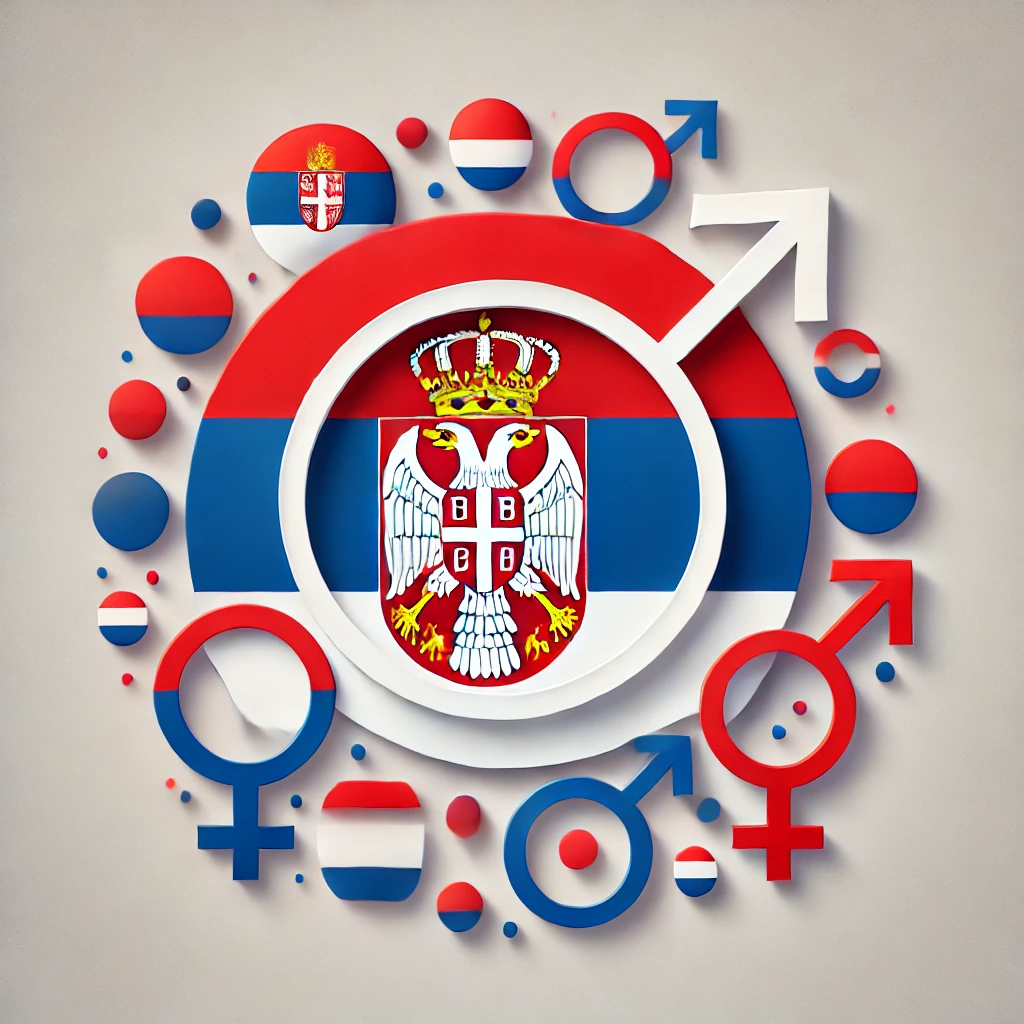Serbian Gender

Understanding Gender in Serbian Nouns
One of the most important things to learn in Serbian is gender. If your native language doesn’t use gender for nouns, it’s essential to pay close attention to this topic. Without understanding gender, you’ll have trouble with other parts of Serbian grammar, especially cases. But don’t worry—unlike some other languages, Serbian has only a few simple rules to help you identify a noun’s gender.
What Is Gender in Language?
In some languages, like Serbian, every noun has a gender—masculine, feminine, or neuter. This doesn’t mean the noun is male or female in a literal sense, and it’s not related to the gender of the speaker. Instead, it’s a way to group nouns into categories.
Think of noun genders as labels that help us understand how to use words together in a sentence. For example:
- Masculine nouns might end differently than feminine or neuter nouns.
- Adjectives and verbs change their forms depending on the gender of the noun they’re related to.
Even objects and ideas have genders in Serbian. For instance, the word for “book” is feminine, while the word for “city” is masculine. Knowing the gender of a noun is important because it affects how you use other words with it.
By learning the genders of nouns, you’ll be able to apply the correct grammar rules when speaking or writing in Serbian. It’s like knowing that some words belong to certain groups, which helps you put sentences together correctly.
General Rules for Identifying Gender
Here are the endings you need to remember for Serbian nouns:
Singular Nouns
- Masculine: Usually end with a consonant.
- Feminine: Usually end with -a.
- Neuter: Usually end with -e or -o.
Plural Nouns
- Masculine: Add -i, -ovi, or -evi.
- Feminine: Change -a to -e.
- Neuter: Change -e or -o to -a.
Masculine Nouns
- End with a consonant in the singular form.
- Form the plural by adding:
- -i if the noun has more than one syllable.
- -ovi or -evi plus -i if the noun has one syllable.
Examples:
Singular Masculine Nouns:
| English | Serbian |
| phone | telefon |
| computer | kompjuter |
| paper | papir |
| mouse | miš |
| husband | muž |
| park | park |
| city | grad |
Plural Masculine Nouns (More than One Syllable):
| English | Serbian |
| phones | telefoni |
| computers | kompjuteri |
| papers | papiri |
Plural Masculine Nouns (One Syllable):
- If the noun ends with š, č, ć, đ, ž, j, add -evi.
- Otherwise, add -ovi.
| English | Serbian |
| mice | miševi |
| husbands | muževi |
| parks | parkovi |
| cities | gradovi |
Summary of Plural Formation for Masculine Nouns
- Nouns with more than one syllable: Add -i to form the plural.
- One-syllable nouns ending with š, č, ć, đ, ž, j: Add -evi.
- One-syllable nouns ending with other consonants: Add -ovi.
Feminine Nouns
End with “a” in a singular form
Form the plural by changing “a” to “e“
Examples:
Singular Feminine Nouns:
| English | Serbian |
| house | kuća |
| kitchen | kuhinja |
| store | prodavnica |
| message | poruka |
| sister | sestra |
| mom | mama |
Examples:
Plural Feminine Nouns:
| English | Serbian |
| houses | kuće |
| kitchens | kuhinje |
| stores | prodavnice |
| messages | poruke |
| sisters | sestre |
| moms | mame |
Neuter Nouns
End with either “e” or “o” in a singular form
Form the plural by changing the ending to “a“
Examples:
Singular Neuter Nouns:
| English | Serbian |
| egg | jaje |
| village | selo |
| island | ostrvo |
| mirror | ogledalo |
Examples:
Plural Neuter Nouns:
| English | Serbian |
| eggs | jaja |
| villages | sela |
| islands | ostrva |
| mirrors | ogledala |
Tips for Learning Gender in Serbian
- Focus on the endings of the nouns to determine their gender.
- Practice with examples to become familiar with common patterns.
- Remember that there are exceptions, but they are few. Concentrate on the general rules first.
By understanding these simple rules, you’ll find it much easier to learn Serbian grammar. Take your time to study the gender of nouns, and you’ll build a strong foundation for the rest of your language learning journey.


